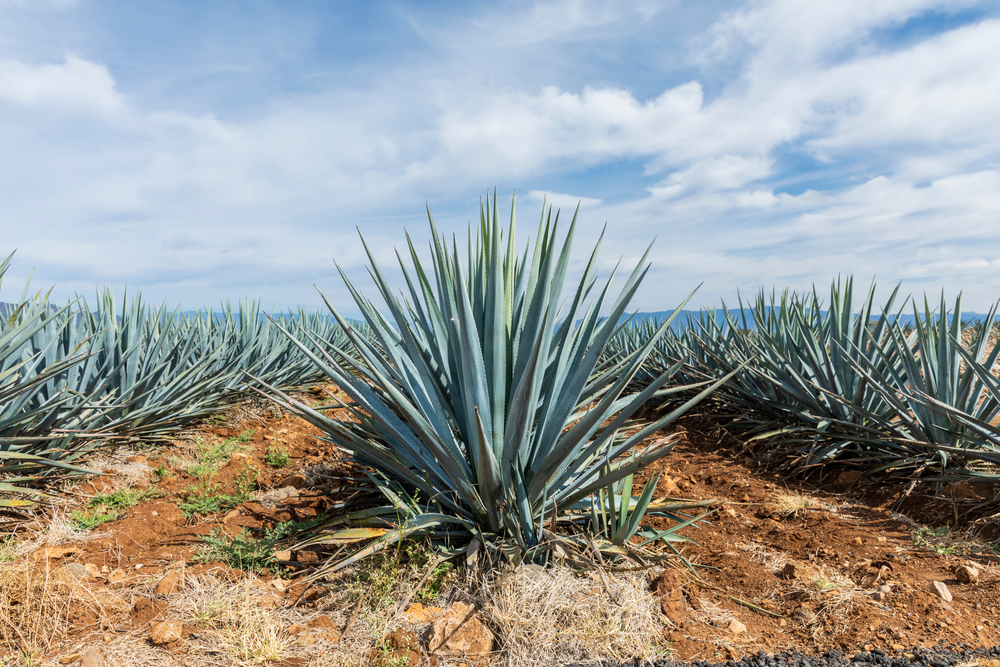Researchers at UC Davis are researching agave’s commercial viability.

Between the drought and wildfires raging through California’s fields and vineyards, producing a profitable harvest has become a struggle. But amid the threat that climate change has brought to local winemakers, there’s new potential for another kind of California-grown booze: tequila.
While it won’t be true tequila, which can only be called that if grown inside the Mexican state of Jalisco, researchers are looking into the commercial viability of agave, the plant from which tequila and mezcal are made.
Earlier this month, UC Davis announced that it had established a fund to focus on agave plants and their viability as a low-water crop in the state. The initiative began after two Central Valley farmers, with their own 1.5-acre test plot of 900 agave plants, donated $100,000. The funds will be used to study how to optimize agave crop production in California relative to Mexico, where labor costs are lower and farmers rely on rain rather than irrigation for water. Donors who have contributed to the founding and creation of the fund say they hope others will also pitch in to help build the groundwork for a budding industry to take off.
“The rainfall patterns and growing conditions in California are different from those where tequila is made,” says Ron Runnebaum, an assistant professor of viticulture and enology, who will be involved with the project. “It is exciting to begin to harness the capabilities at UC Davis to determine which agave varieties can be grown commercially in California and what flavors can be captured by distillation to make unique California agave spirits.”
Agave plants take anywhere from six to eight years to mature and require minimal watering. Given that the state has been in a megadrought and is facing unprecedented caps on water use, agave could be an ideal crop for that reason alone. It also serves as a firebreak from the ongoing threat of wildfires.
UC Davis isn’t the only organization looking into agave’s viability as a crop in California. A few months before the school’s research fund was established, the inaugural California Agave Council was created. On its website, the group said it was formed to foster collaboration and offer a chance to share knowledge among members who previously had no formal network. Their largest effort to date has been trying to usher through a piece of legislation that would establish a statewide criteria for what it would mean to be labelled a “California agave spirit.”
Excellent information and really updated